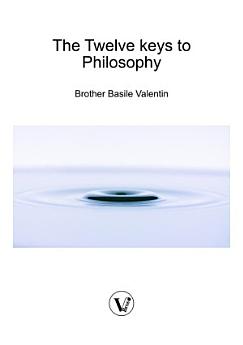The Twelve keys to Philosophy
About this ebook
Each of the twelve keys represents a crucial principle, providing both a conceptual framework and practical guidance for those seeking to transcend the ordinary and access higher states of consciousness. Through these allegorical teachings, Valentin presents a holistic vision of the alchemical process, one that transcends the laboratory and speaks to the soul’s journey toward enlightenment and divine union.
A cornerstone of esoteric philosophy, The Twelve Keys to Philosophy is a must-read for those interested in understanding the deeper, metaphysical aspects of alchemy, as well as for seekers of spiritual wisdom who wish to explore the profound interconnectedness of all life and the mysteries of existence.
Basile Valentin was a 16th-century alchemist and one of the most influential figures in the history of Western alchemy. A Dominican friar, he is best known for his profound contributions to the understanding of the alchemical process and the quest for the Philosopher's Stone, a mythical substance believed to grant immortality and transmute base metals into gold. His writings, such as The Triumphal Chariot of Antimony, have left an indelible mark on the development of alchemical thought, blending spiritual, philosophical, and practical aspects of the ancient art. Often regarded as a key figure in the transition from medieval to Renaissance alchemy, Basile Valentin’s work continues to inspire alchemists, scholars, and esoteric seekers around the world, offering a glimpse into the deeper mysteries of transformation, both material and spiritual.
About the author
Sous le nom de Basile Valentin (en latin Basilius Valentinus), présenté comme un moine bénédictin du XVe siècle, parurent au début du XVIIe siècle un certain nombre de traités alchimiques qui connurent un grand succès.




